Cine Kurumin - Curator
It was a rich experience and honour to be a part of the Cine Kurumin curatorial team, feature-length program, held in Salvador, Brazil October 2024. 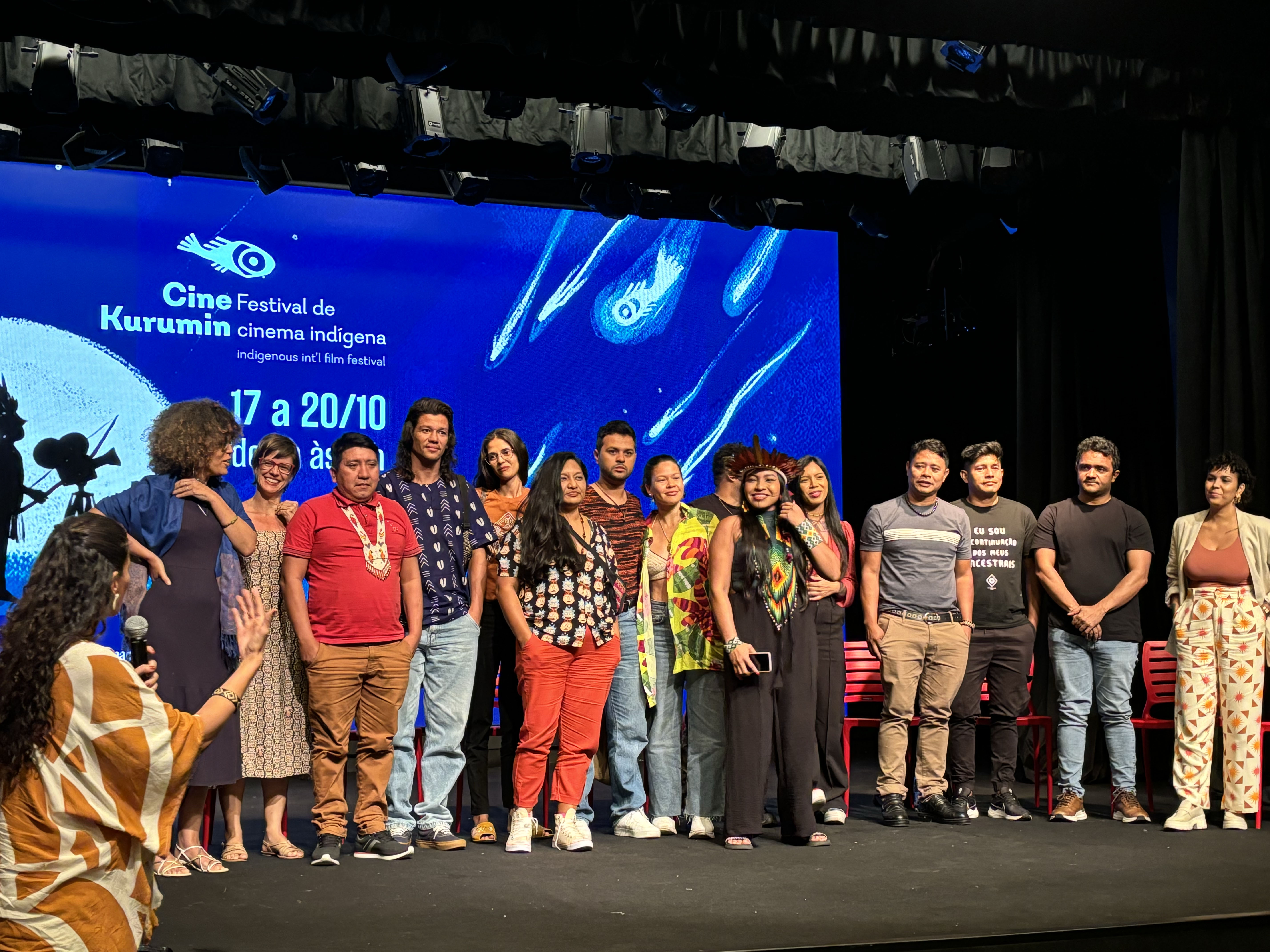
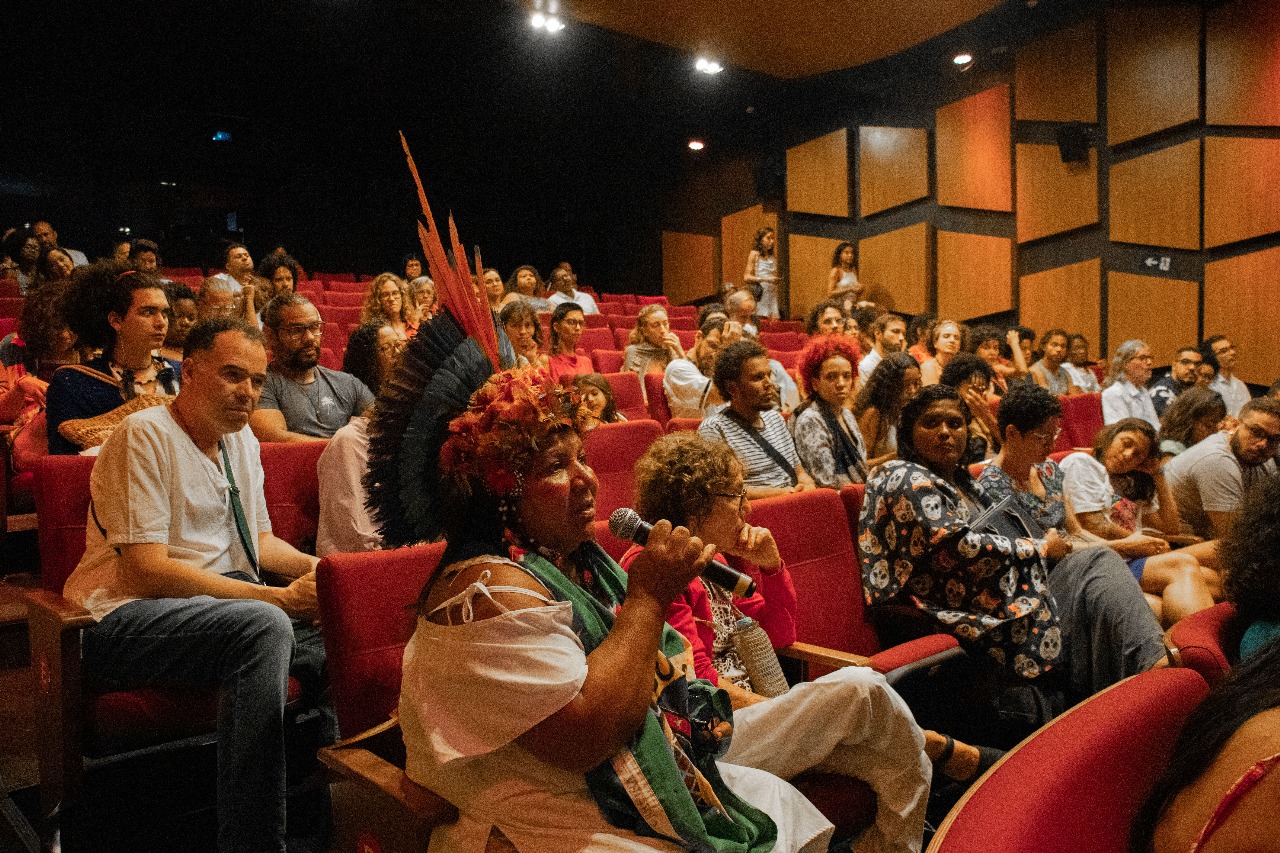

Diaspora Dialogues: Archiving the Familiar
Curated by Sarah Shamash & Tamara Toledo
https://www.surgalleryvirtual.ca/
“…the archive represents the end of a certain kind of creative innocence, and the beginning of a new stage of self-consciousness, of self-reflexivity in an artistic movement.” Stuart Hall
Stuart Hall’s quote underscores the significance of situating this exhibition as a moment of self-reflection on the contributions of Latin American diaspora media artists to Canadian media art histories. The contested terrain of both the terms “archive” and “diaspora” requires deeper consideration since this exhibition asks what the meaning is behind making these two terms form a dialogue with one another. Diaspora Dialogues: Archiving the Familiar features work by women artists Gabriela Aceves Sepúlveda, Cecilia Araneda, Soledad Fátima Muñoz, Amanda Gutiérrez, and Rosalina Libertad Cerritos all of which are from the Latin American diaspora and apply a variety of critical and aesthetic approaches to the archive. The exhibition will also be in dialogue with a virtual screening of video art by women artists from the 70s and 80s hosted on VIVO Media Arts Centre website entitled Women & Art: Political Praxes of Memory. This dialogue established between Latin American video artist pioneers from Brazil and Chile foregrounds the diaspora’s relationship with “original” culture, “copy”, and “archive”.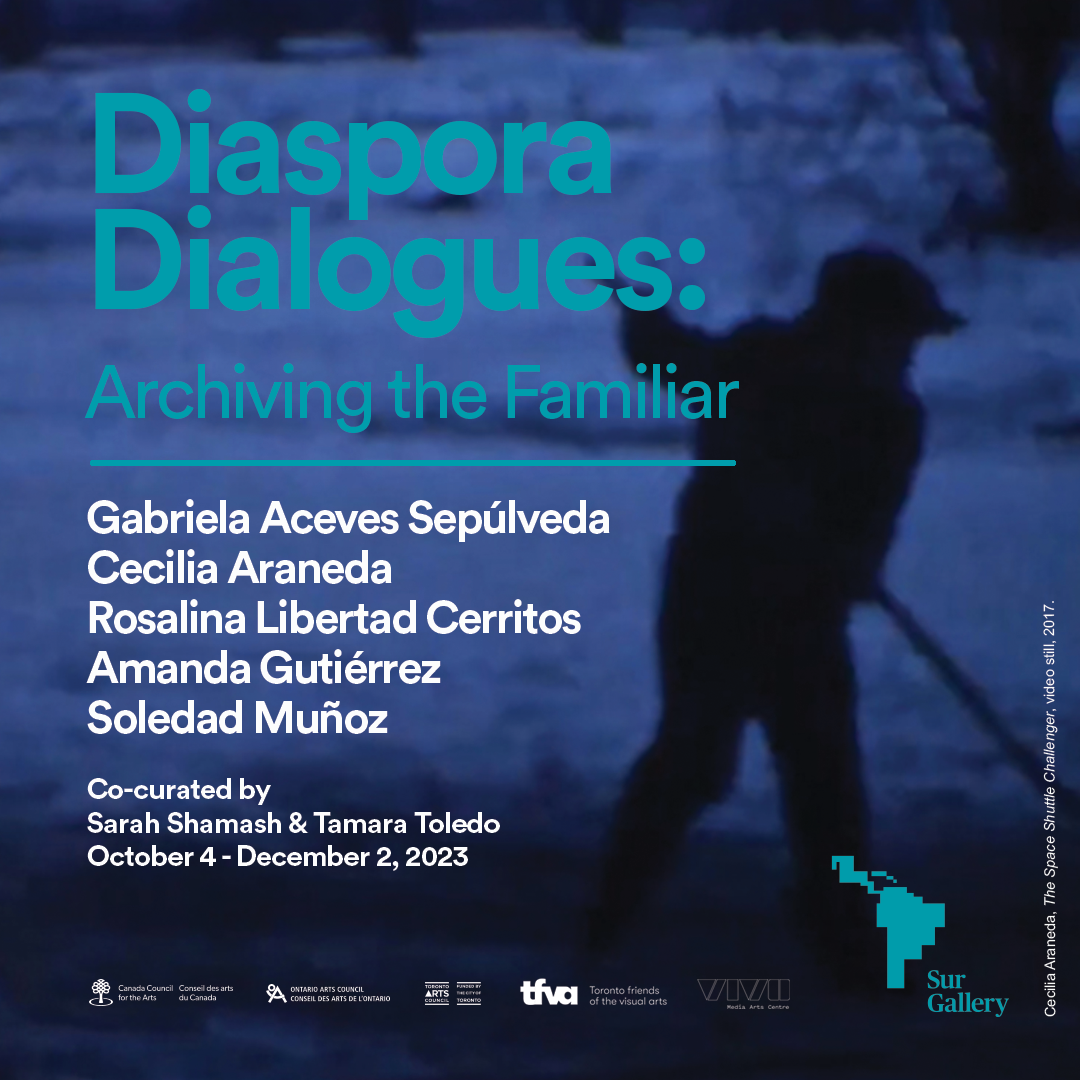
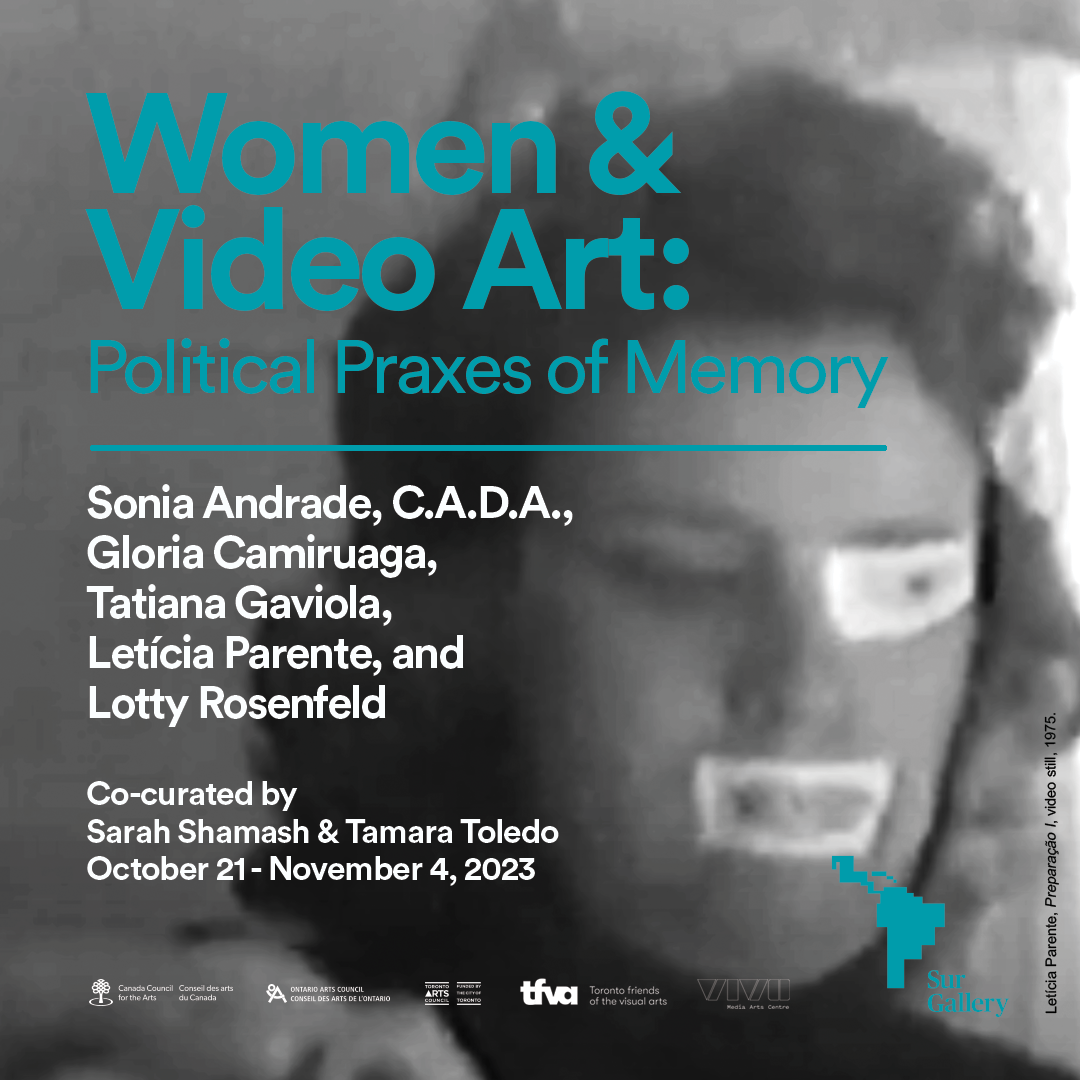
Documentary Dialogues from Turtle Island to Abya Yala: Languages, Matriarchies, and Territories
Curated by Sarah Shamash, Lilia García Torres, Liliana Cordero Marines, Oswaldo A. Lara Orozco, Alberto Cuevas Martínez
The struggle and resistance of Indigenous and Afro-descendant peoples in the Americas inhabiting Turtle Island to Abya Yala, have addressed common problems based on the shifting geopolitics of their respective regions. Among them and at the center of our curatorial focus is the struggle to defend territory, the revitalization of mother tongue languages and the role and participation of women in social formations that continue to resist capitalism and patriarchy. In recent decades, a recurring strategy of these peoples has been the use of video and documentary film as nonviolent tools of political resistance and representational sovereignty that seek to make visible the problems they face. Thus, from the perspective of documentary cinema as an expanded field of study, it has become critical to create spaces for reflection and awareness around the irreducible role that the use of these video technologies acquires in the organization and communication of these communities in their struggle for sovereignty. This documentary film program is organized as a cycle of three film series on mother tongue languages, matriarchies and defense of territory over the months of February, March, and April 2022 with accompanying dialogues with filmmakers. For more check out the ReDOC website.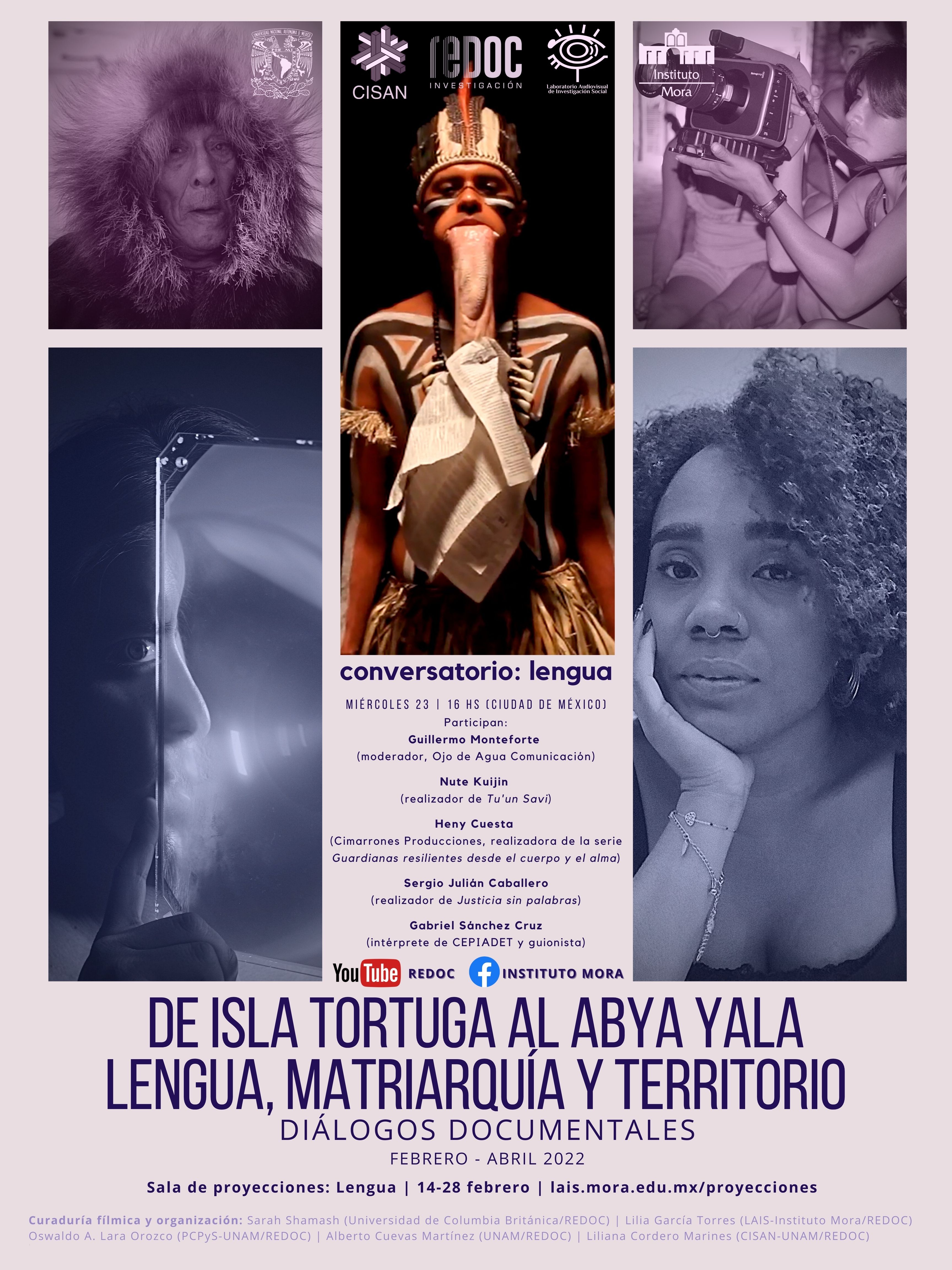
Film and Motherhood
Curated by Sarah Shamash, Gabriela Aceves-Sepúlveda, prOphecy Sun
The film and motherhood curatorial project is comprised of four programs: Experimental Shorts (online), Intimate Portraits (online), a Feature Length film (online), and Gallery Screening (in person). Curated by Gabriela Aceves Sepulveda, Sarah Shamash, and prOphecy Sun (all members of the art/mamas collective), the moving image works all speak to the complex relationships to, engendered by, and toward motherhood. As we adapted our program to the conditions of the evolving pandemic, these works were selected from our local context on unceded Coast Salish territory in Vancouver, across Turtle Island, to Abya Yala and beyond. As practicing media artists and mothers, we considered the roles and challenges of motherhood as explored through the diverse and culturally specific perspectives in the film and video programs presented. The diverse selection of films and videos on varied interpretations of “motherhood,” taken as a whole, self-reflect on the condition of being an artist/filmmaker today.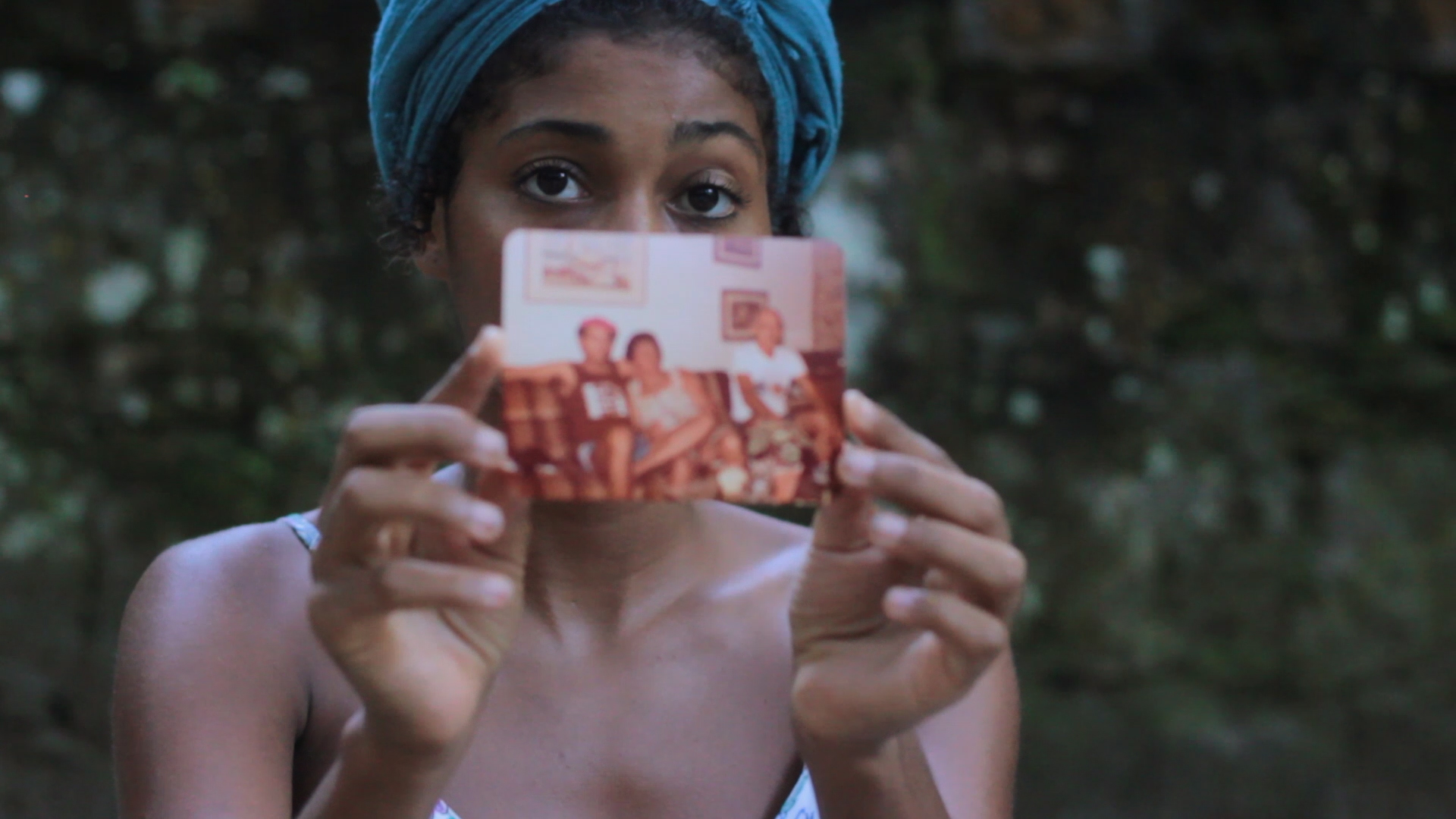
Travessia (2017) Dir. Safira Moreira
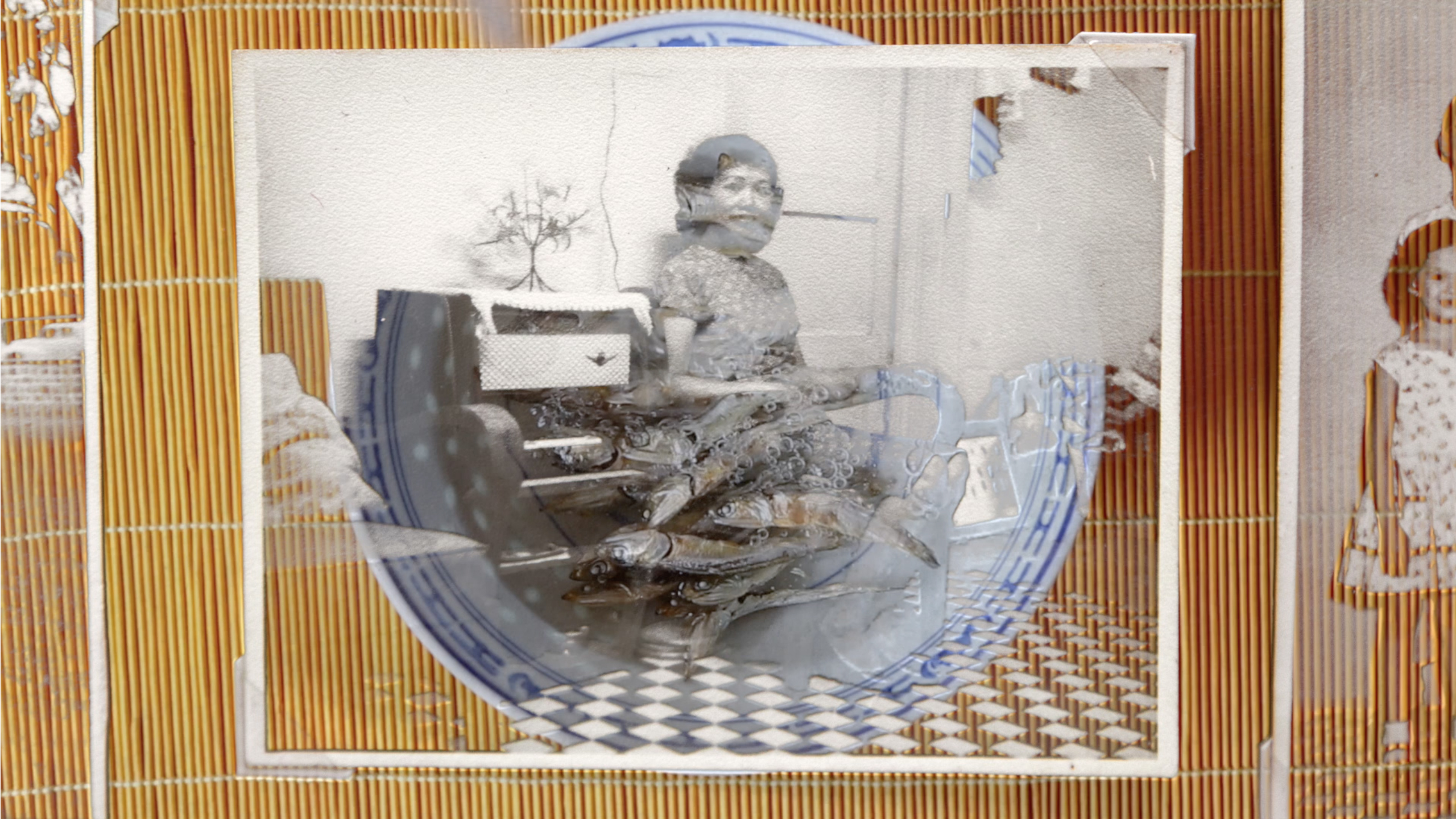
Daughters of our Diaspora (2020) Dir. Clare Yow
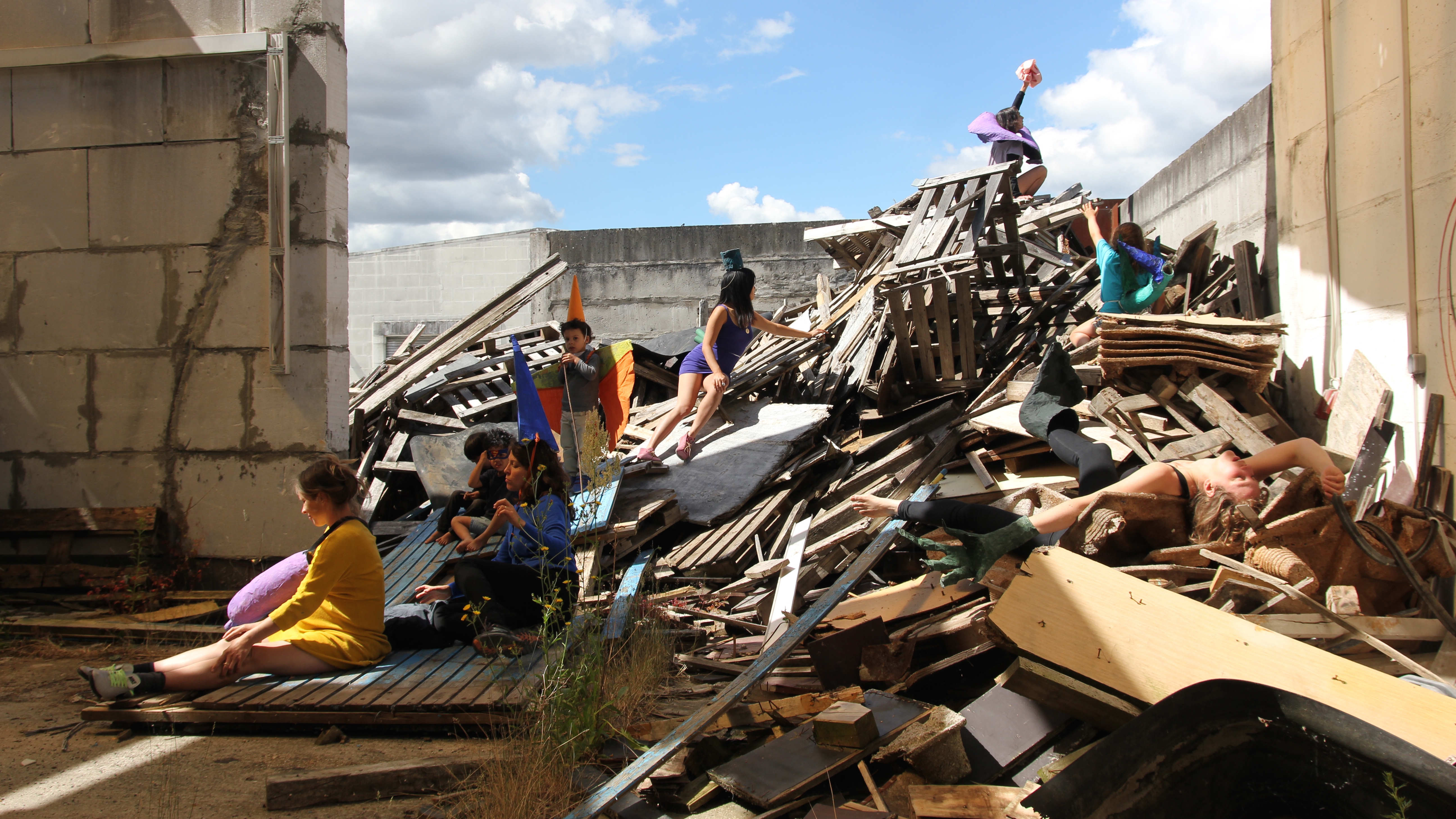
Suspended Time, on Caring 2020 Dir. Maternal Fantasies
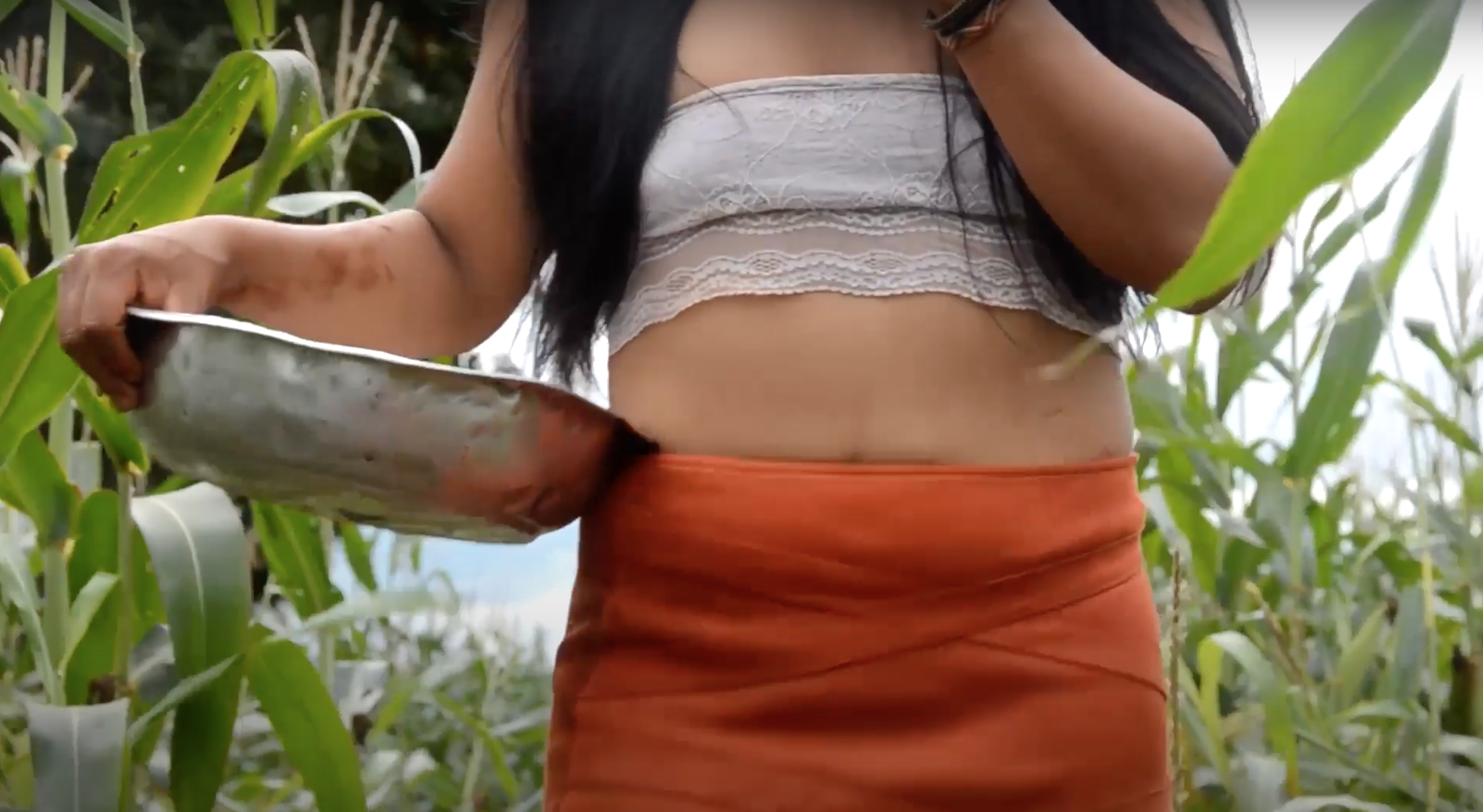
De Michele para Sophia (2021) Dir. Michele Kaiwá
The Film and Motherhood program was accompanied by a dialogue with filmmakers: Jules Koostachin, Nadine Valcin, Preta Performance, Clare Yow, Ghinwa Yassine, and Maternal Fantasies on October 16th 2021. Link to recording
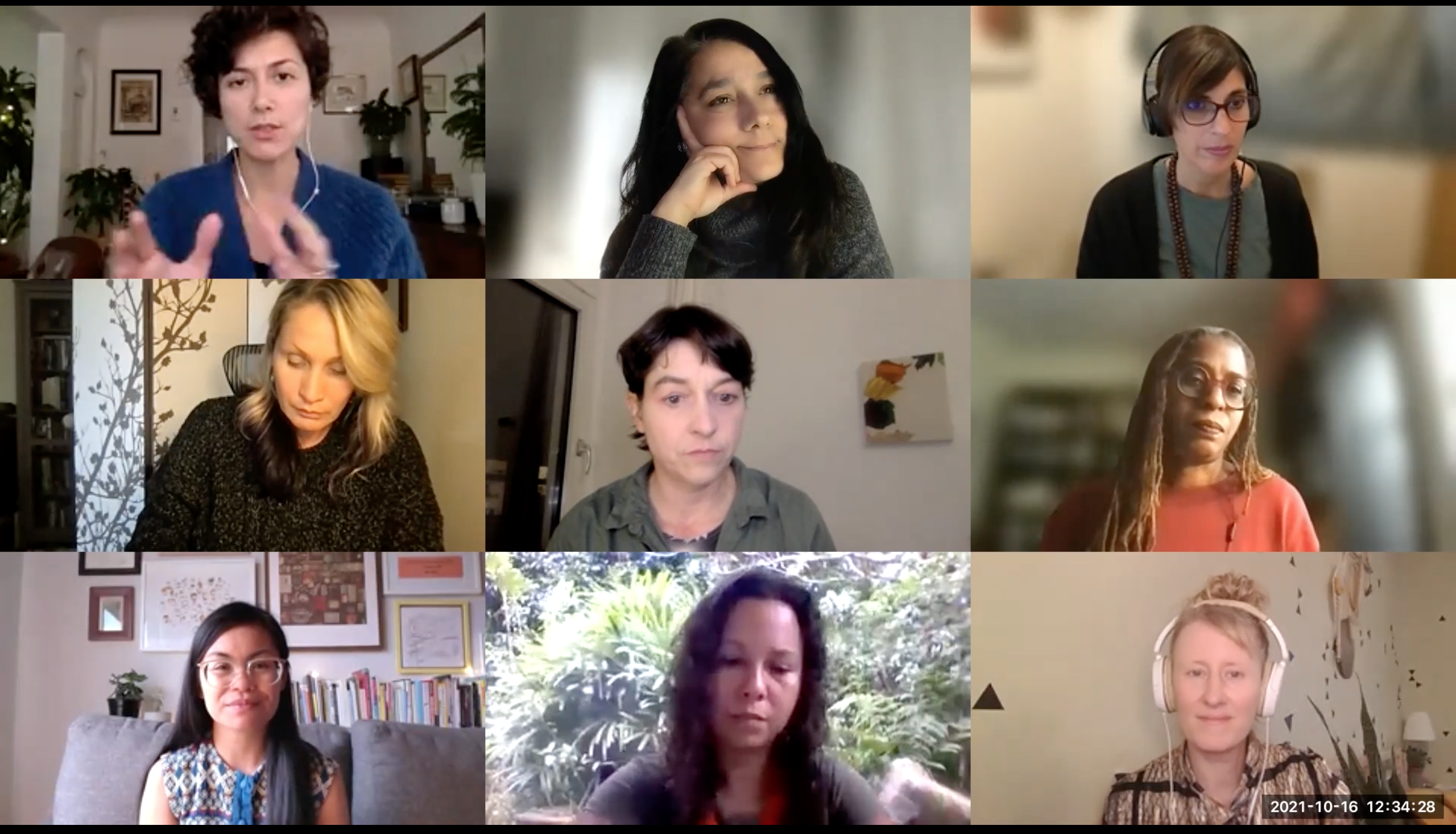
Indigeneity, Women & Resilience
Curated by Sarah Shamash and Sonia Medel (Vancouver Latin American Film Festival 2020)
This year is not business as usual. For us, this VLAFF is not curation as usual. This abbreviated program of Indigenous Film from BC & Beyond is one through which we communicate our dedication to Indigenous and racialized women (a struggle we also situate ourselves within). We express a commitment to the resilient and brave ways in which Indigenous girls, women, and matriarchs are leading a way forward. In this time of pandemics and rebellions, we meditated on the question: for whom is the world being saved and who are the beings actually doing the transformative work? We watch billionaires profit off economic, humanitarian, and ecological crises through intentional genocide. The Amazon rainforest burns. The murder and disappearance of Indigenous women (MMIWG) continues. We witness patriarchy and white supremacy attempt to silence women’s voices. With this program we honour women warriors, their narratives, and their power to reimagine worlds across Turtle Island and Abya Yala.
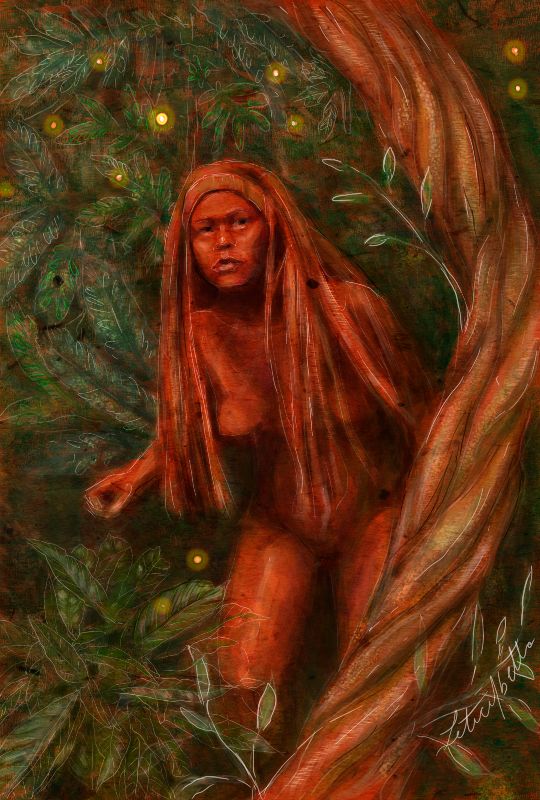
Image from Kaapora, O Chamado das Matas / The Call of the Forest
Dir. Olinda Yawar Muniz Wanderley Pataxó Hã-hã-Hãe/Brazil, 2020 | 20 min
This program "Indegeneity, Women & Resilience" was followed by a dialogue with participating filmmakers.
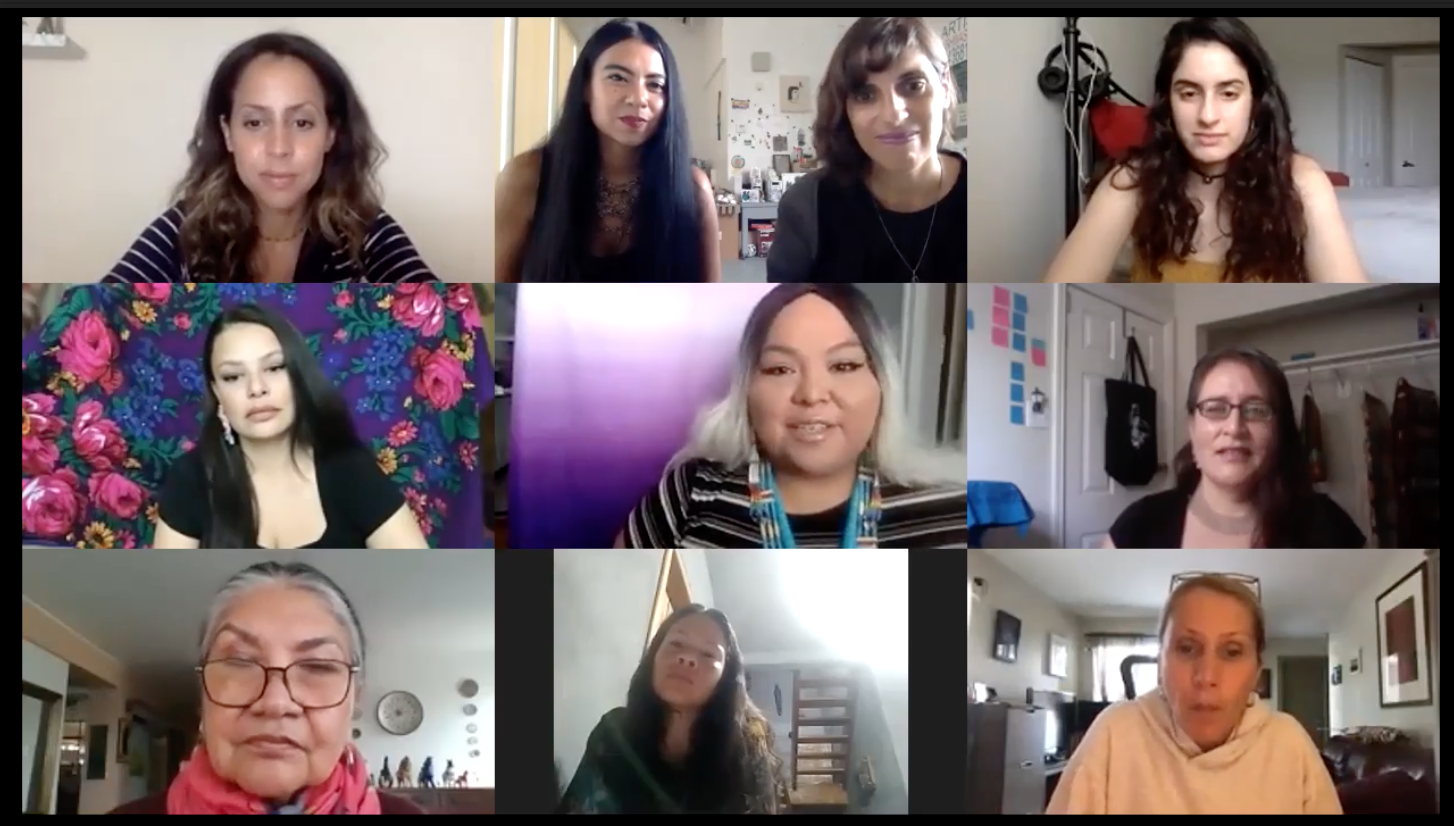
Link to dialogue: https://vimeo.com/464379913
Dir. Jerilynn Webster - The Most Unprotected Girl Nuxalk and Onondaga Nations/Canada, 2018 | 3.40 min
Dir. Jules Koostachin - KaYaMenta (2020) screening in forthcoming Indigenous Film from BC & Beyond program
Dir. Madelaine McCallum - Sukaskieskwew (Strong Earth Woman) Cree/Métis, 2018 | 5.17 min
Dir. Nanobah Becker - The 6th World Navajo Nation/Diné/USA, 2012 | 15 min
Dir. Olinda Yawar Muniz Wanderley - Kaapora, O Chamado das Matas / The Call of the Forest Pataxó Hã-hã-Hãe/Brazil, 2020 | 20 min
Tarcila Rivera Zea - Contributor to Nanayqa mana chinkaqmi – El dolor no desaparece
Dir. Federación Provincial de mujeres Quechuas de Vilcas Huamán y Chirapaq Centro de Culturas Indígenas del Perú
Quechua/Peru, 2019 | 7.20 min
Oral / textual translations during zoom dialogue by Valeria Ascolese (Spanish) and Juliana Ponde (Portuguese)
Languages of Sovereignty
Curated by Sarah Shamash & Sonia Medel (Vancouver Latin American Film Festival 2019)
In agreement with the United Nations 2019 declaration of the International Year of Indigenous Languages, we aim to showcase the diversity of creative cinematic visions from Abya Yala to Turtle Island. Across spatio-temporal and cross cultural boundaries, this program of Indigenous language cinema celebrates language sovereignty as an act of self-determination. Our curatorial vision connects films from First Nations, Metis, Inuit, Indigenous and Afro-Indigenous filmmakers in a hemispheric dialogue that meditates on language as a knowledge system as it intersects with identity, memory, (de)territorializations, cultural heritages, her/histories, and geo-politics across fluid timelines that project a futurity for Indigenous language sovereignty. In order to elaborate our discussion, our curated film program will be accompanied by a dialogue circle led by practitioners, scholars, and activists, of film and language sovereignty.
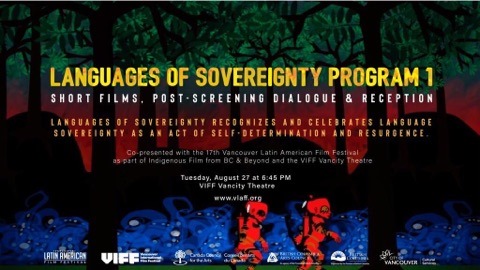
Image still from ᎤᎧᏖᎾ ᎠᎴ ᎠᏴᏓᏆᎶᏍᎩ (UKTENA AND THUNDER)
Director: Joseph Lewis Erb USA | 2017 | Cherokee | 8.48 min
BLACK FILMMAKERS: BRAZIL
Curated by Sarah Shamash
These short films as part of the Vancouver Latin American Film Festival 2018 showcase the diversity of storytelling approaches and filmmaking forms by some of Brazil’s rising Black Brazilian filmmakers. From Tila Titunda’s documentary on her Angolan roots in the coastal town of Olinda, Pernambuco (FotogrÁFRICA 2016), to the Carvalho Brothers’ carioca film (Chico 2018), depicting a dystopian future as a parable for Brazil’s oppressive and racist policies, while dreaming of Black liberation, to Yasmin Thayná’s visual essay on the complex dynamics and ode to power of Black female identity in her film Kbela 2015, this program highlights storytelling and film experimentation by talented Black voices in Brazil.
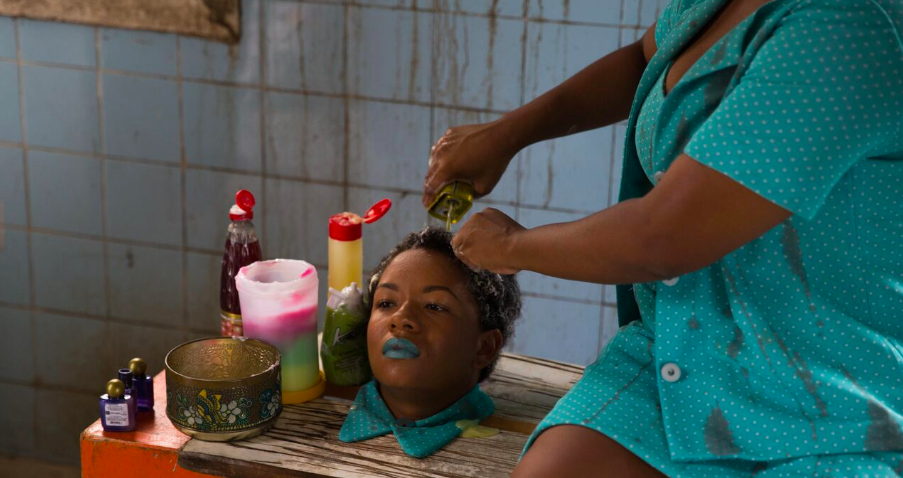
Image still from Kbela Director: Yasmin Thayná Brazil, 2015 |Portuguese with English subtitles | 22 min
The Experimental Aesthetics of Female DIY Video
Curated by Sarah Shamash and Julie Gendron (Utopia Festival 2012)
In the course of media art practices, the shifting power of access from cinema to digital has brought a rise of possibility in independent production among women artists. Lightweight, portable equipment, wider access to media art education and tools are contributing factors to revolutionizing representations of women and minority narratives. This program of short videos from Vancouver and beyond reflects a diversity of sophisticated, handcrafted aesthetics and narratives through the lenses of 11 women artists, participants in critical experimentations and shifts of power in our contemporary media art landscape.
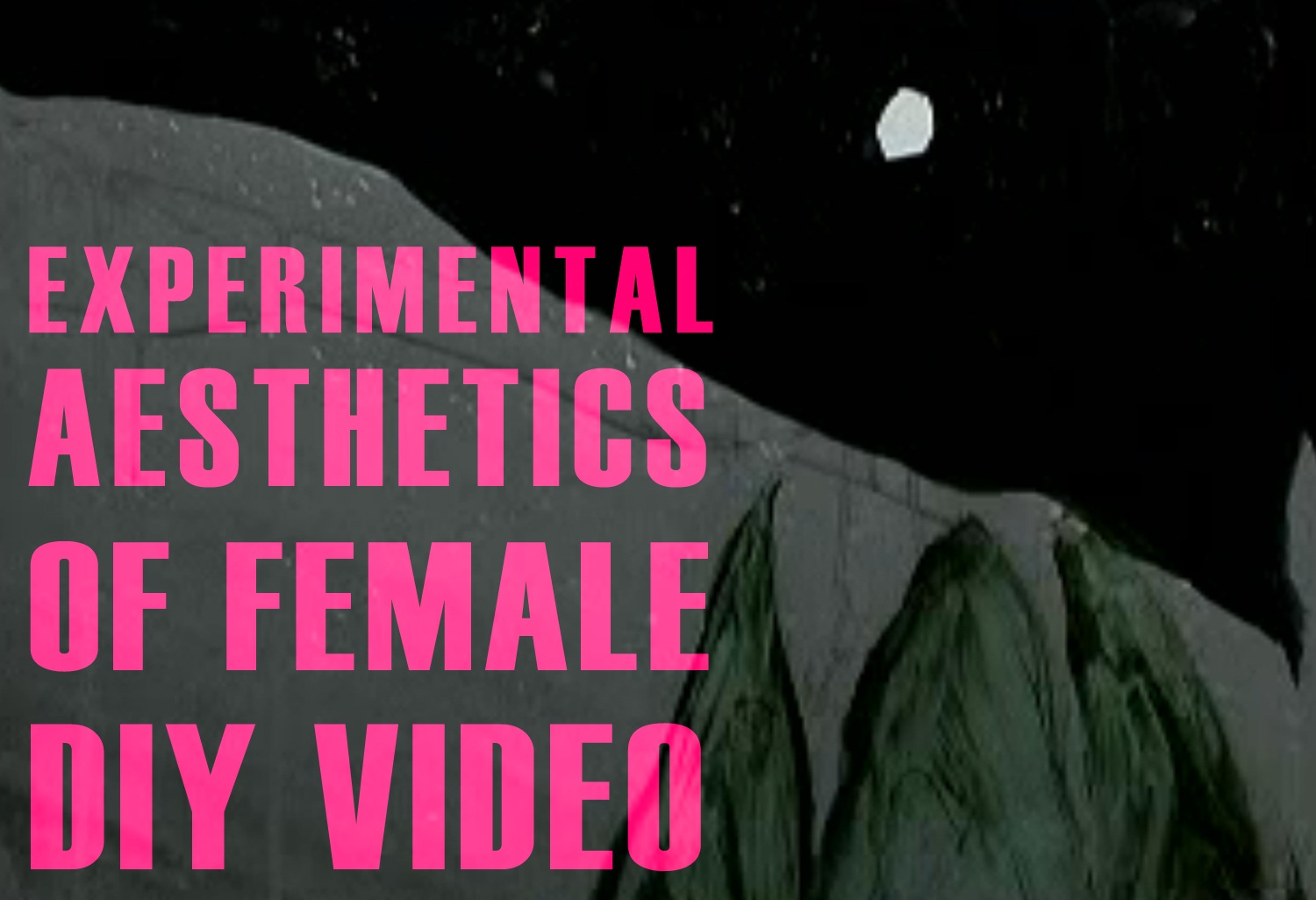
Image still from Estudios de Paisaje 2010 Artist: Amanda Gutierrez
Accented Video and the Autobiographical
Curated by Sarah Shamash and Aisha Jamal
Hamid Naficy, the Iranian film scholar, explains how “Accented Cinema” reflects a cinema of exile, displacement, and diaspora through alternative modes of filmmaking that draw from the personal experiences of post-colonial, Third World individuals living in the “West.” Our desire to present “accented” videos was a desire to show the contemporaneity and relevance of the legacy of Third Cinema, while addressing ideas around diaspora, hybridity, and what Canada deems “multi-cultural” in our media art landscape and through an autobiographical lens. The program focuses on video works by artist-filmmakers from a Middle Eastern diaspora that dialogue with their “home” and “host” societies.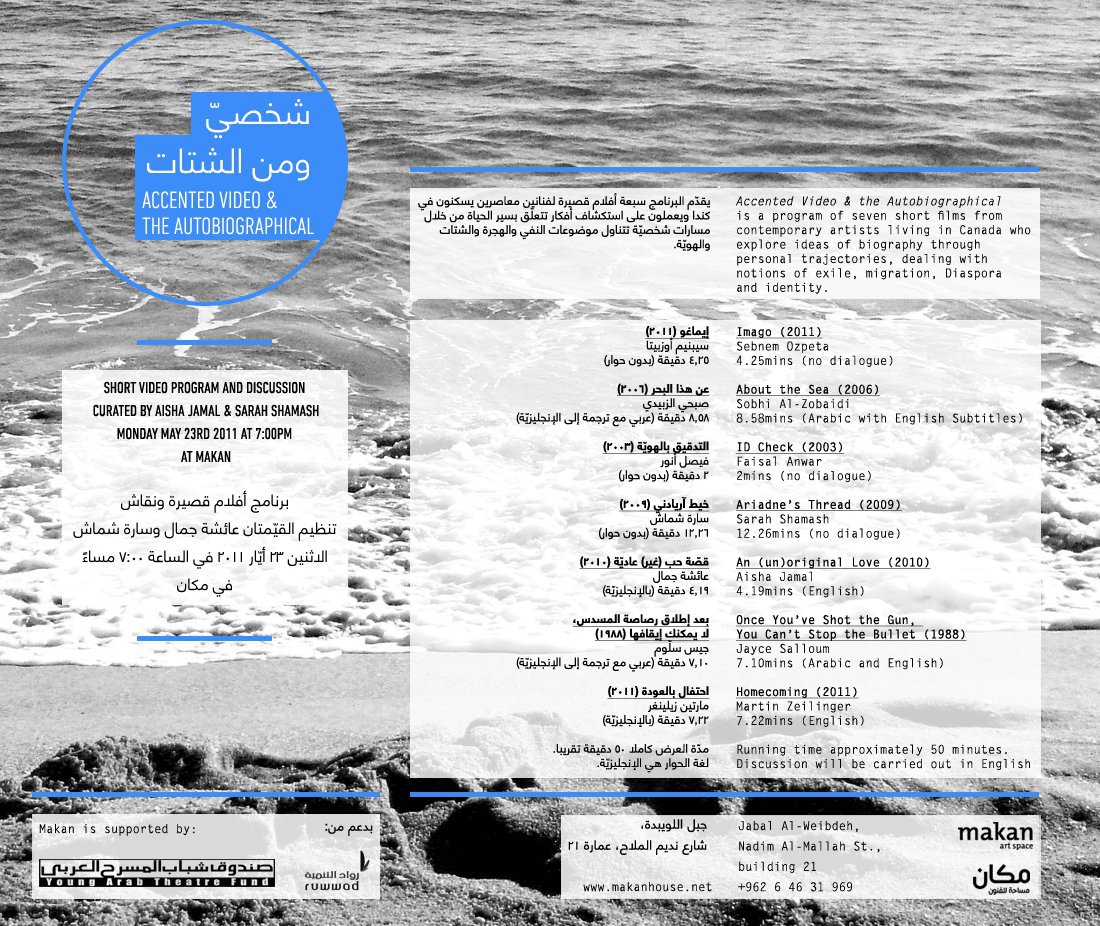
This program was first presented at Makan art space in Amman, Jordan in 2011 and later at Atomic Centre in Winnipeg, Canada in 2012.